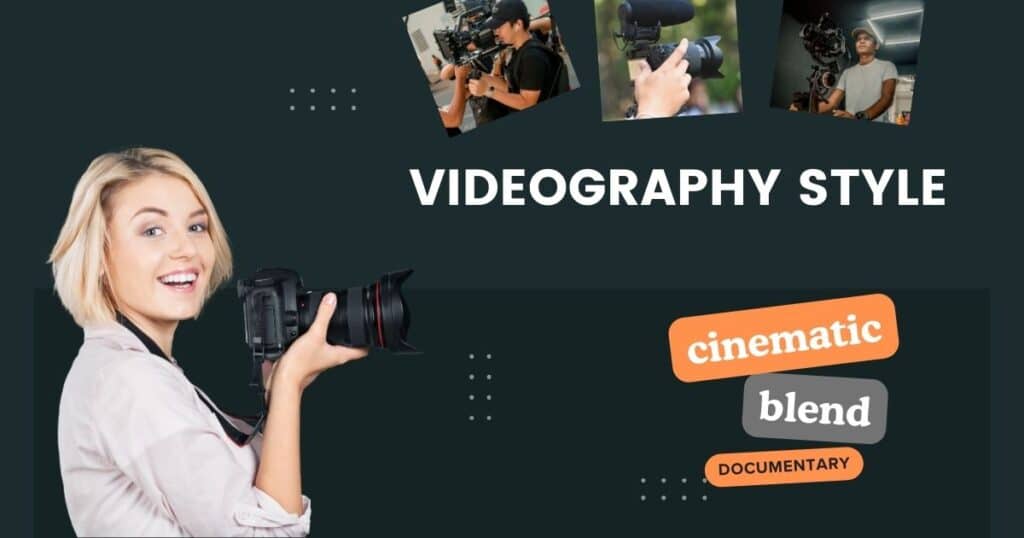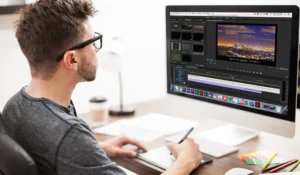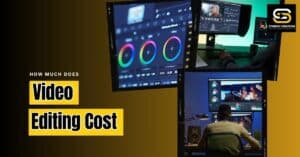Your wedding day is one of the most significant days of your life, filled with moments that you would love to keep with yourself always. Capturing these moments in a video allows you to relive them time and time again. However, selecting the right wedding videographer requires careful consideration. This guide will take you through the key questions to ask a videographer for a wedding, ensuring that every laugh, tear, and dance move is captured in the way you’ve always imagined.
Essential Questions Before Hiring
Before you dive into specifics, it’s important to understand a videographer’s background and what they offer.
- Experience and Style: Inquire about their years in the business, the number of weddings they’ve covered, and their unique style. This will help you gauge if their approach matches your vision.
- Availability and Booking Process: Ensure they’re available on your wedding date and understand their booking process. Knowing their lead time is crucial for smooth planning.
- Package Details and Customization Options: Discuss what’s included in their standard package and any additional features you may want. Customization can make a significant difference in your wedding video.
Understanding Their Videography Style

The videography style is paramount to ensuring your wedding video matches your expectations.
- Style and Influence: Every videographer has their influence and style. Whether it’s cinematic, documentary, or a blend, ensure it aligns with your taste.
- Portfolio Review: Request to see samples of their work, specifically full wedding videos, to get a comprehensive view of their style and quality.
- Editing Process: Understanding their editing process, including music selection and narrative flow, can give you insight into the final product.
Logistics and Day-of Coordination
Logistical details can significantly affect the outcome of your wedding video.
- Hours of Coverage: Discuss how many hours they will be present at your wedding and if there are any extra charges for additional hours.
- Team Composition: Ask about the number of videographers and assistants that will be covering your wedding. A larger team can capture more angles and moments.
- Equipment Used: The quality of the video is largely dependent on the equipment used. Ensure they have high-quality cameras and backup equipment.
Post-Production Details
After your wedding day, the post-production process begins. Understanding this phase is crucial.
- Timeline for Delivery: Ask about the expected timeline for receiving your wedding video. This can vary widely among videographers.
- Formats and Copies: Ensure you know in what formats your wedding video will be delivered and if you’ll receive physical copies or digital ones.
- Revisions and Edits: Clarify if you can request edits to the final video and if there are additional costs involved.
Budget and Payment Structure
Discussing the budget upfront can prevent any surprises down the line.
- Detailed Breakdown of Costs: Request a detailed quote, including any potential extra costs of video editing, to ensure it fits within your budget.
- Payment Schedule: Understand their payment schedule, including deposit and final payment timings.
- Cancellation Policy: It’s important to know the cancellation policy in case of any changes to your wedding plans.
Technical Aspects to Consider
The quality of your wedding video can be greatly influenced by technical aspects.
- Audio Quality and Lighting: Good audio and lighting are essential for a high-quality video. Discuss how they plan to tackle these challenges.
- Drone Usage: Drones can capture stunning aerial shots. If this interests you, ask if they offer drone videography.
- Backup Plans for Equipment Failure: Ensure they have a backup plan in case of equipment failure. You don’t want to miss any moments due to technical issues.
Questions to Ask Videographer for Wedding
This is your opportunity to ask specific questions related to your wedding.
- Unique Offerings: Inquire about any unique services they offer that can make your wedding video stand out.
- Experience with Venue: If they’ve worked at your wedding venue before, they’ll be familiar with the best spots for wedding detail shots.
- Approach to Capturing Authentic Moments: Understanding their approach to capturing genuine emotions and moments can give you confidence in their ability to document your day.
Real Weddings and Testimonials
Hearing about other couples’ experiences can provide valuable insight.
- Access to Full Wedding Videos: Watching full videos of real weddings they’ve covered can give you a clear idea of what to expect.
- Client Testimonials: Ask for testimonials or reviews from previous clients to gauge their satisfaction levels.
- Case Studies: If available, case studies of previous weddings they’ve covered can showcase their expertise and creativity.
Finalizing the Deal
Before signing on the dotted line, make sure you’re completely comfortable.
- Contract Essentials: Review the contract in detail, paying close attention to services provided, costs, and terms and conditions.
- Communication and Planning: Discuss how they plan to communicate and coordinate in the lead-up to your wedding. Smooth communication is key to a successful collaboration.
- Tips for Working Together: Ask for any tips on how you can work together to make the videography process as smooth as possible.
Conclusion: Summary and Next Steps
Choosing the right wedding videographer is a significant decision. By asking these questions, you can ensure that your wedding day is captured in a way that reflects your personality and style. Remember, this video will be a keepsake of one of the most special days of your life, so it’s worth taking the time to select the perfect videographer for you.
FAQs
How can I ensure my wedding video captures the most important moments?
Communication is key. Share a list of must-have moments and discuss the videographer’s approach to spontaneous events. A skilled videographer will blend your preferences with their expertise to capture both planned and impromptu moments beautifully.
Is it necessary to meet the videographer in person before the wedding?
While in-person meetings can be beneficial for building rapport and discussing details, they’re not always necessary. Virtual meetings or phone calls can be equally effective, especially if your videographer is well-versed in handling arrangements remotely.
Can I choose the music for my wedding video?
Most videographers allow couples to suggest music preferences. However, they’ll guide you on copyright considerations and how the music’s tempo and mood will complement your video’s narrative and visuals.
What happens if my videographer is unable to attend due to an emergency?
Professional videographers typically have contingency plans, including partnerships with other trusted professionals who can step in. Ensure this is discussed and included in your contract to avoid any last-minute surprises.
How involved can I be in the editing process?
The level of involvement varies by videographer. Some may welcome your input throughout the editing process, while others might ask for feedback only after presenting a first draft. Clarify this before signing your contract to ensure their process aligns with your expectations.








